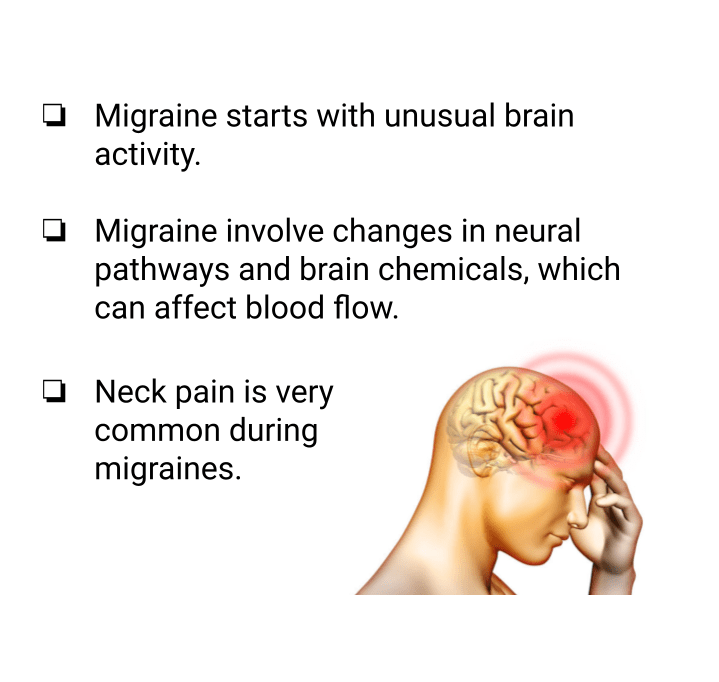
What You Need To Know About Migraine Headaches
Let’s talk about migraine headaches. They’re not just bad headaches. They’re complex events happening in your brain. While we’re still learning about them, we know they start with unusual brain activity that can be triggered by various factors.
Here’s what we currently understand.
Migraine headaches begin in the brain, involving an intricate dance of neural pathways and brain chemicals. These changes then affect blood flow in the brain and surrounding tissues, leading to the wide range of symptoms you might experience during a migraine.
Now, you might wonder why neck pain or other symptoms often present strongly during a migraine. Migraines can make your neural pathways more sensitive. Think of it like turning up the volume on your brain’s pain receptors. This means that normal sensations from your neck might be misinterpreted as pain during a migraine.
The common symptoms associated with migraine headaches, which include severe pain on one or both sides of the head, nausea, visual disturbances, dizziness, and other symptoms. Many doctors believe that migraines are caused by the dilation and constriction of blood vessels in the head, leading to these debilitating symptoms.
Then, what causes it?
It’s a combination of different factors that can make you more likely to experience these intense headaches. If your parents get migraines, there’s a good chance you might too. Genetics play a big role. Women are also about three times more likely to get migraines than men, though we’re not entirely sure why. Age is another factor. Most people start getting migraines between 10 and 40 years old.
What many people miss is trauma to the head and neck. Even a minor fender bender car accident can cause structural damage to the neck. Structural damage means that the force from the external impact is transferred to the neck, creating improper motion leading to spinal misalignments. A good example is cervicogenic headaches. In this case, headaches stem from problems in the neck itself, usually involving structural issues. This is why it’s crucial to get a proper evaluation.
What’s NUCCA chiropractic care?
At Head & Neck Spinal Care, we offer NUCCA chiropractic care, which can determine if your neck pain is related to migraines or has another underlying cause, ensuring you receive the appropriate treatment. Small, measurable spinal misalignments in the upper neck can significantly increase the frequency and intensity of migraine episodes. Upper cervical chiropractors specialize in detecting and correcting these atlas misalignments. If you’d like to learn more about NUCCA chiropractic care, please call us at (847) 497-5003.